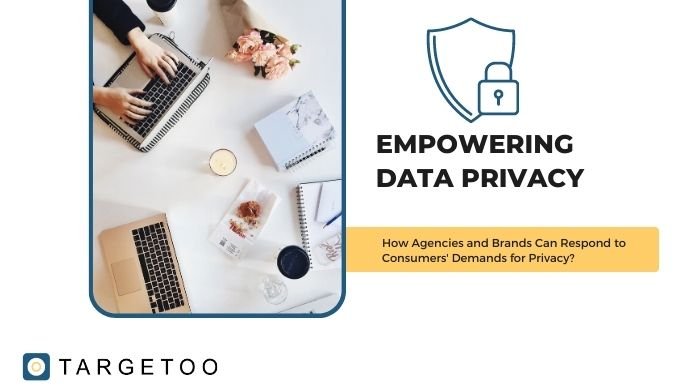When US and UK agencies are asked how they were advising clients in this area. How do you solve a problem like... navigating consumer privacy concerns? These are some answers:
Havas Media Group: “The mere fact that we can do not obligate us to. Instead of seeking out proper permission to use data, the industry frequently looks for what is allowable (what we can get away with). When it comes to the use of data for advertising, this is wrong on a moral and intellectual level. Clients should adapt their behavior in line with shifting consumer behavior and adhere to the spirit of the regulation rather than just the letter of the law. In many ways, our attention has been drawn to the cookie, which has caused us to lose sight of the reasons behind people's actions. The consumer insights we gain from connecting the “why” to the “what” translate into more significant outcomes for the client's bottom line.”
Deloitte Digital: “Privacy laws and significant technological changes have placed brands in a difficult position: how can they best advertise to and personalize for both customers and consumers? It is crucial for brands to keep their customers as the compass as they navigate these uncharted waters. At Deloitte Digital, we counsel the brands we work with to consistently provide value to the market. Customers and consumers will gladly provide their data for advertising and personalization when the brand fosters a greater engagement with its customer base, whether it be through fresh content on social media platforms, compelling messaging about product features, or the creation of entertaining viral moments.”
EssenceMediacomX: “Customers want relevant brand engagements at every stage of the customer journey, and delivering this requires an omnichannel perspective of consumer interactions. In order to address customers' privacy concerns and the demand for seamless and customized experiences, brands must be astute in how they use consumer data. This starts at the time of acquisition when they must offer a valuable value exchange. Additionally, they must actively seek out novel approaches to managing personalization without customer data, such as through more sophisticated contextualization or propensity models, and they must offer experiences that convince customers that doing so is worthwhile.”
Digital Experience and Technology: “To begin, we ask our clients, 'What data do we truly need vs. what data do we simply want?' We advise our clients to keep the request as simple as possible and to be completely transparent about their privacy policies on their website. A simple email address, accompanied by the promise of something valuable in return, such as a newsletter or an offer, can be a good place to start. You can make additional requests and enrich that data over time, but only after you have earned that initial level of trust. This takes time and patience, but it pays off in the long run by reducing friction.”
Wunderman Thompson: “In the UK, privacy legislation is a contentious and complicated issue, but managing different laws in different nations makes it even more so. The advertising ecosystem is changing faster than the law.
In addition to abiding by privacy laws and how ad networks are responding, we advise clients to ask a bigger question: "What is ethically responsible for your brand when it comes to data privacy?" This will help them stay ahead of the curve. We introduced Entrust, our data ethics advisory service, in 2021 to assist clients with precisely this challenge by going above and beyond the requirements of the law and asking, "What do you, as a brand and business, believe to be right and ethical?" We've worked with some of the biggest brands to define these standards and help them spread them throughout their business so they can earn the customers' valuable trust.”
Gut Miami: “Because of privacy issues and because some brands have abused customer databases by inundating prospects with messages through their owned channels, it has become harder and more expensive for brands to build a first-party database. People become hesitant to continue giving out their contact information as a result. Users are also aware that those who don't care about privacy will expect something in return for their personal information because it is valuable. The wave of 1:1 personalization has long passed. People do not like it when advertisers target them with ads based on data. Retargeting is the lone exception because they are aware that if you abandon a cart, the item will continue to pester you.”
Starcom: “I believe that agencies and clients are very conscious of the need to protect consumer privacy and are using the data they collect more purposefully than ever and putting procedures in place to do so. Taskforces have been established, and Data Protection Officers (DPOs) have engaged in discussions about the best ways to access client first-party data in a considerate, useful, and respectful manner that promotes consumer relevance and advertiser business outcomes.”
Vertical Leap: “Businesses should implement GA4 as soon as possible, per our recommendation. Depersonalizing and aggregating marketing insights are helpful for businesses when calculating ROI, comprehending visitor engagement, and gathering business data. To roll out consent mode and enhanced conversions, which aim to use machine learning models where users opt out of cookie collection, our internal data science and paid media teams collaborate closely with Google. This fills in some of the data gaps that would result from users choosing not to be tracked for privacy reasons. To comply with the evolving privacy landscape, a cookie management platform installation must be done correctly. Users actually prefer more targeted ads over irrelevant ones, so it's crucial to inform those who want to strike a balance between privacy and fully functional websites.”
Fusion92: "We go above and beyond industry standards to protect the presumptive consumer knowledge marketers have by putting in place self-regulatory controls that restrict access to the data. We'll either avoid the data or impose restrictions that make us the only ones who can activate it if we have legal access to third-party marketing data that feels intrusive. We can make sure that the advertiser doesn't unintentionally step over a queue and degrade the customer experience. The use of consumer data, if properly managed, can benefit both the advertiser and the consumer. The advertiser can more effectively target their messages.
Curtis Cochran Definition: "As a marketer, it is crucial to develop interactions that give consumers a sense of naturalness and that your business is a reliable partner who they can trust to protect their data and use it to their advantage. With that trust comes the obligation to be open and honest about the information being gathered, how it will be used, and with whom it might be shared. Consumers should, in the end, view their data as a commodity that can be used to their advantage and that they are free to choose where and when to provide.”
January Digital: “Our agency is embracing contemporary, post-privacy marketing more quickly than our rivals, and it's evident. Brands and agencies must mature when they are able to address a complete business challenge that involves the interaction of the product, the marketing, the consumer, the market, and so on. In recent history, brands and marketers alike became very mired in the premise of precision marketing: data manipulation to achieve incredibly precise targeting. To win over consumers, however, true integration of all marketing components and the measurement of all outcomes (rather than just sales) must take center stage as privacy gains prominence.”
Want to grow your business, we are here to help you. Contact us












































